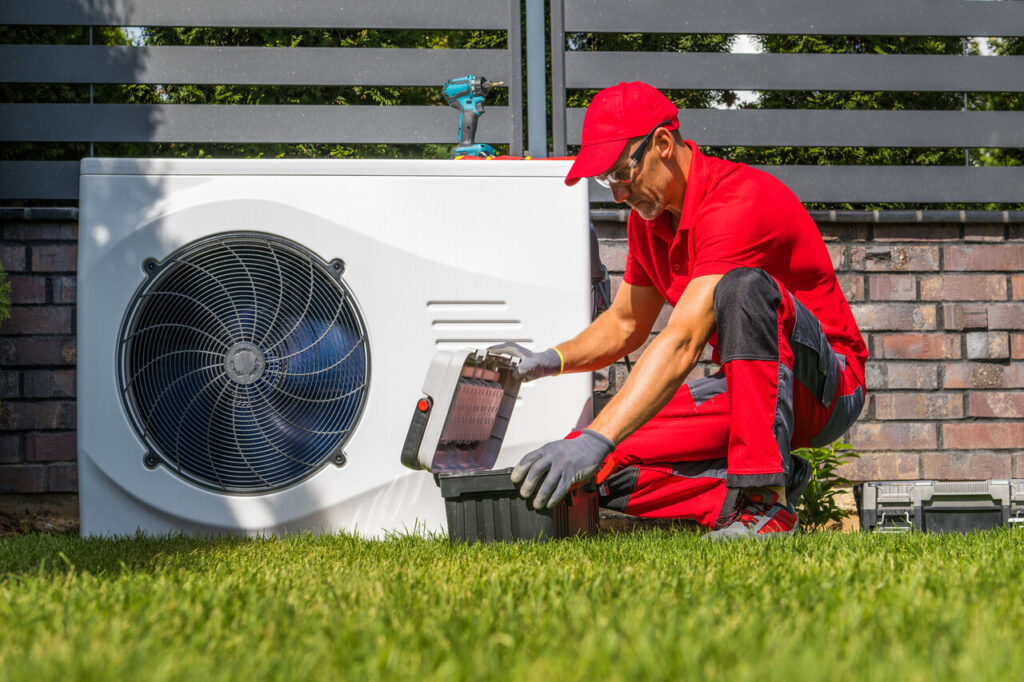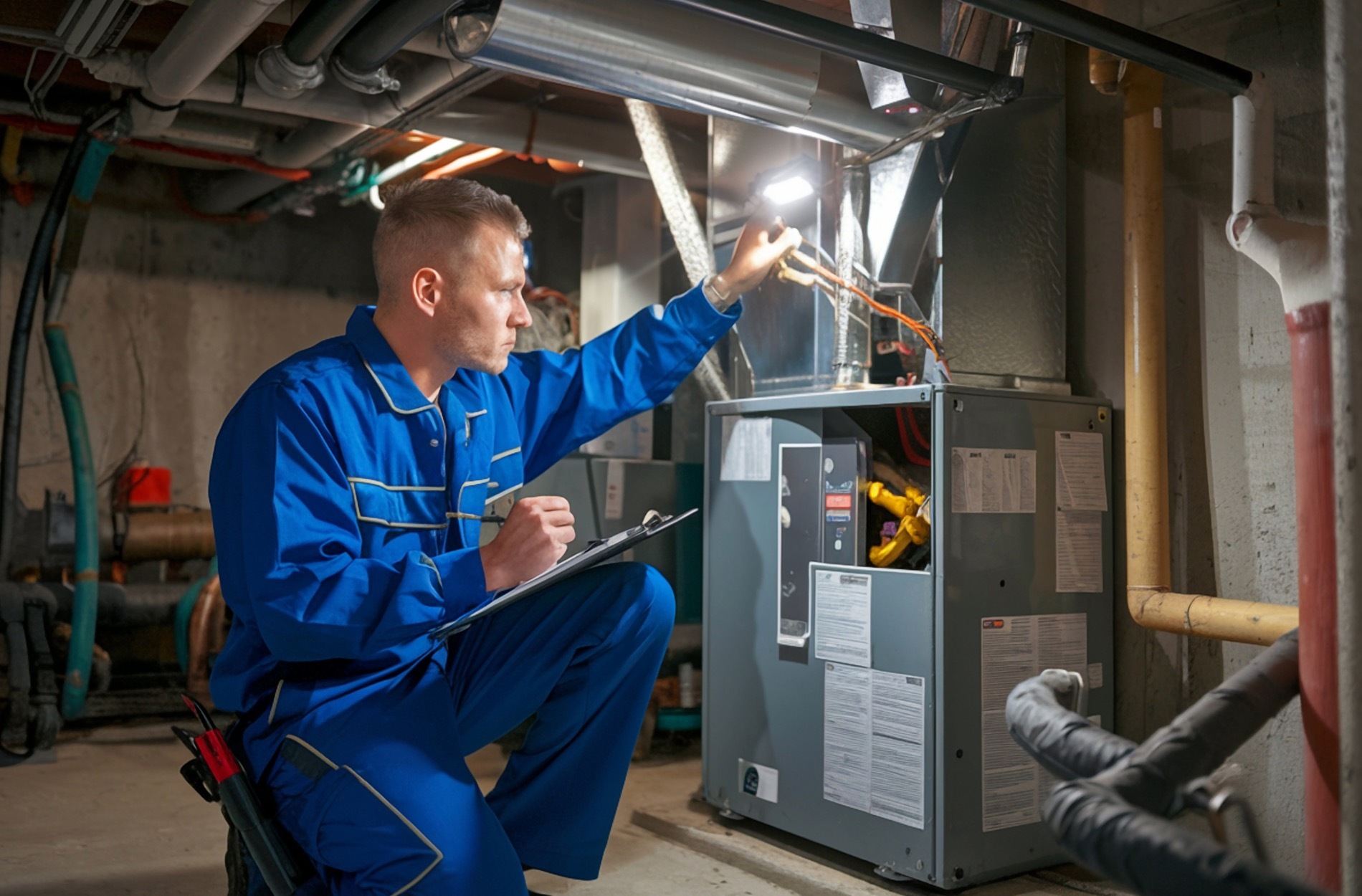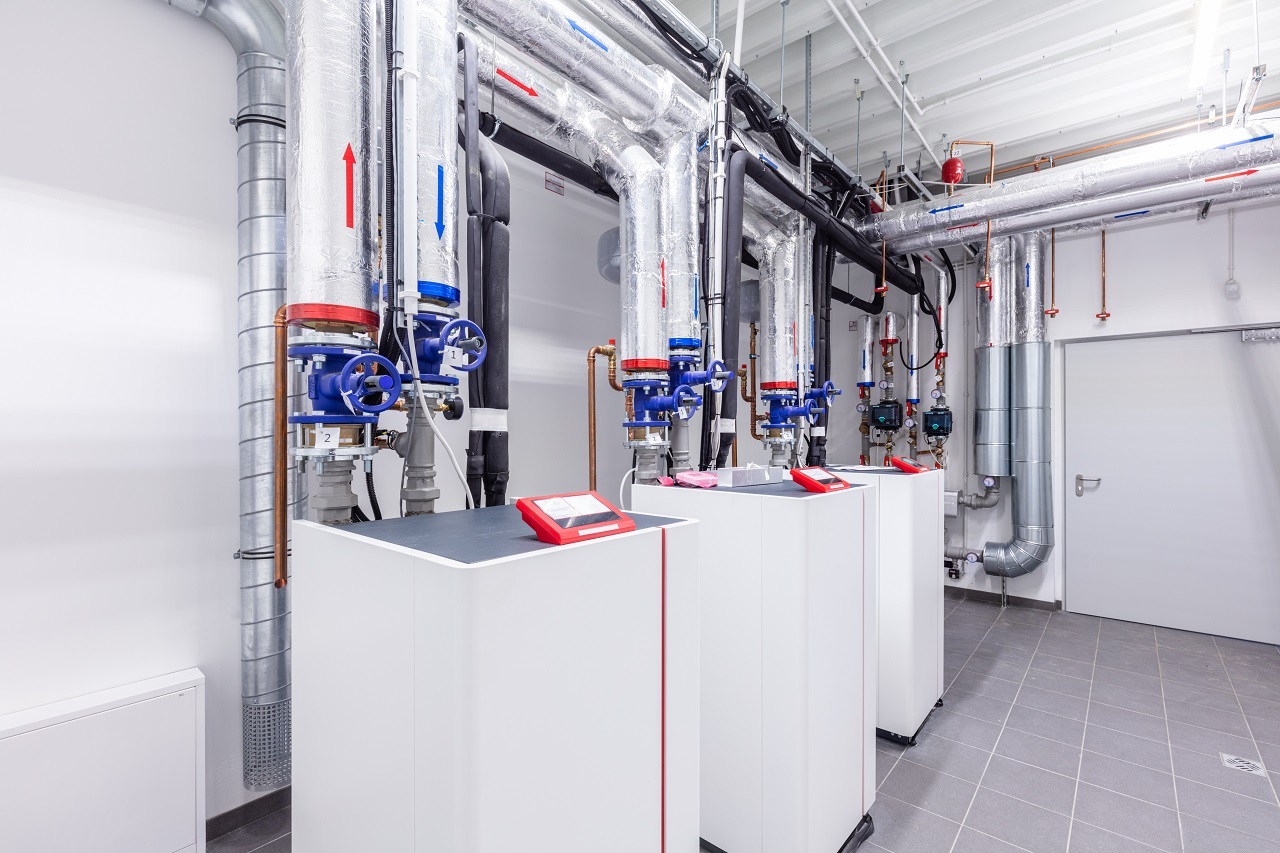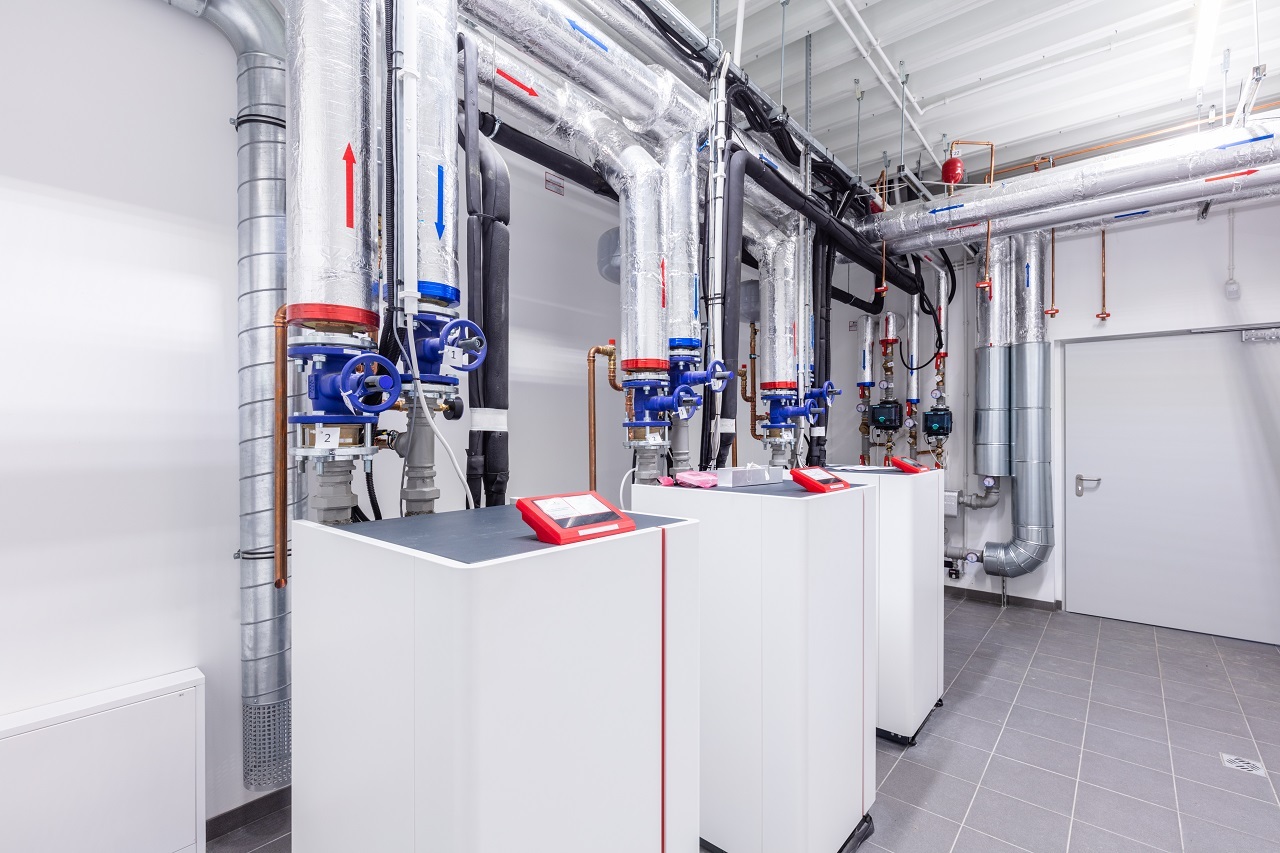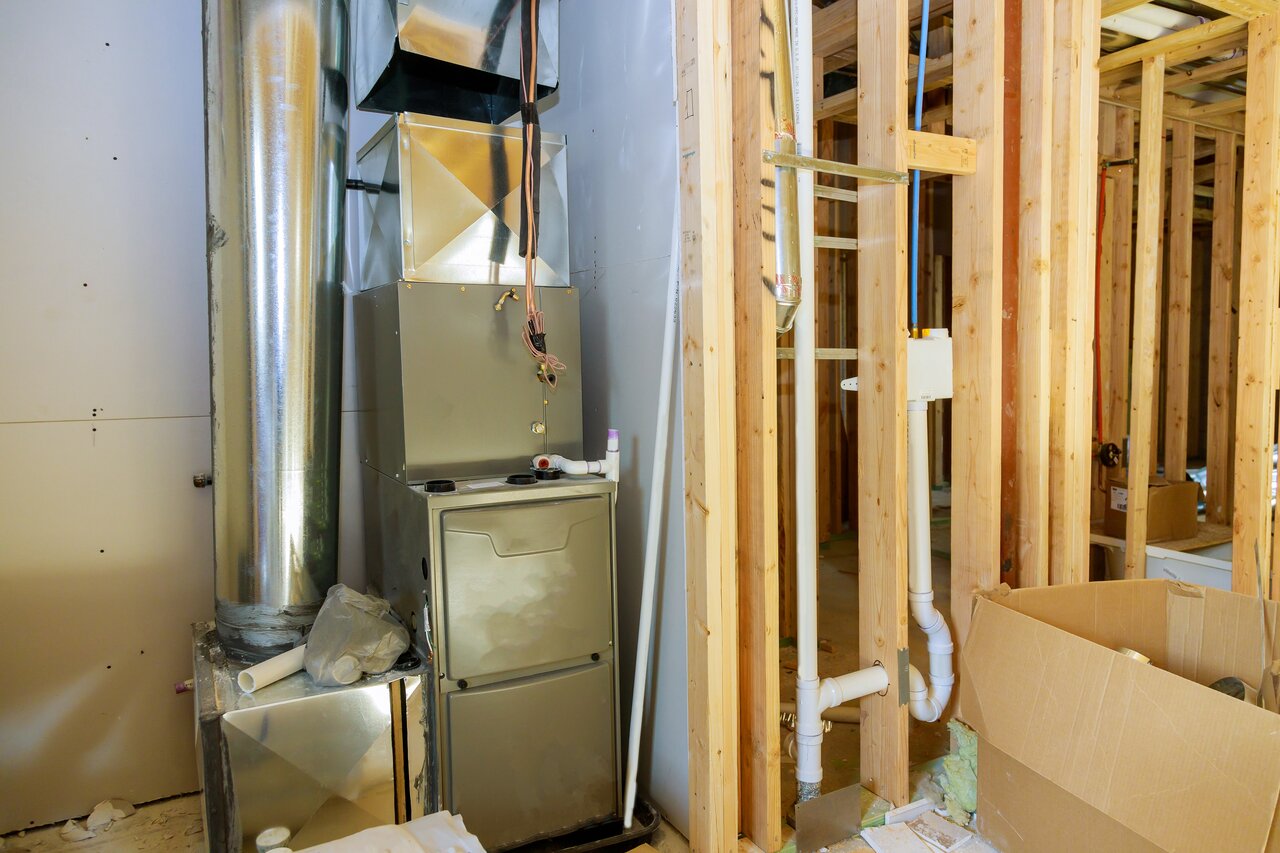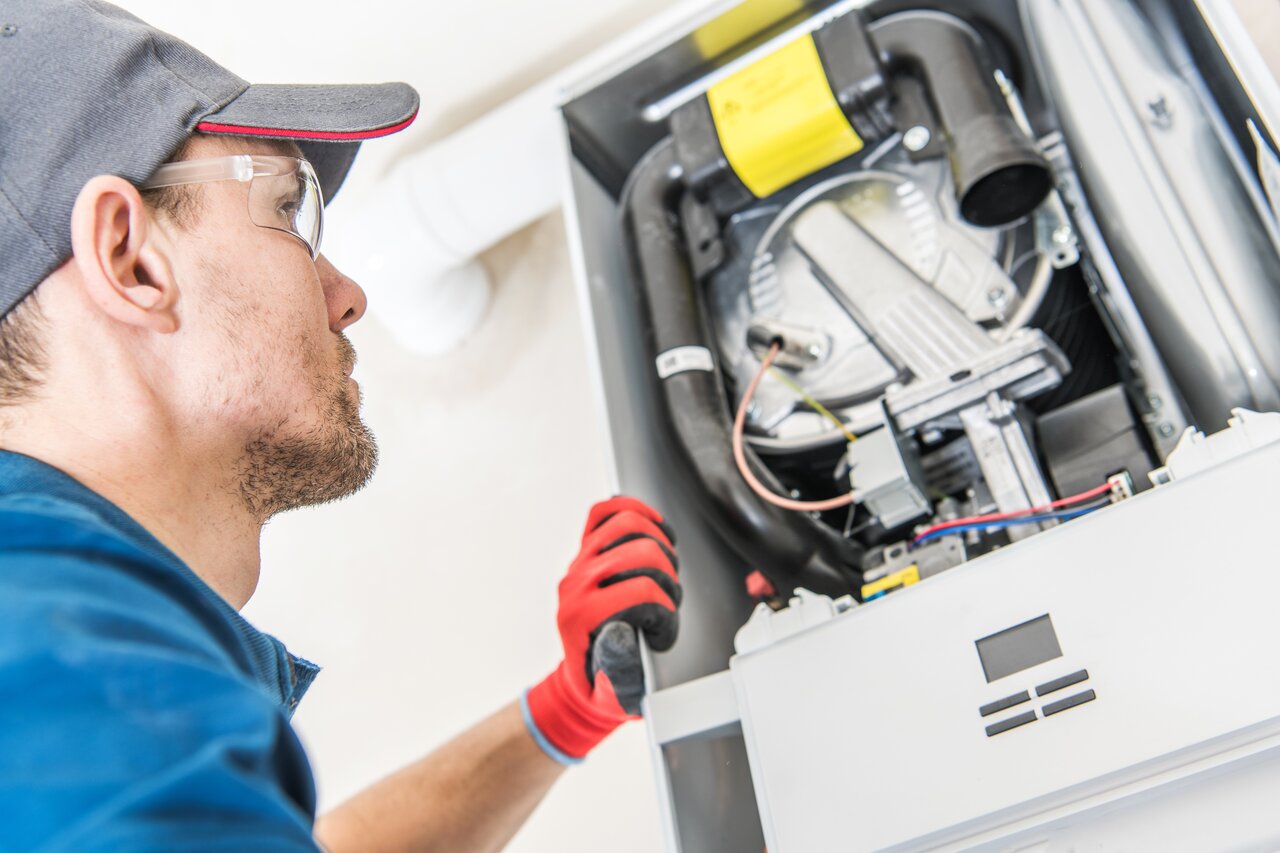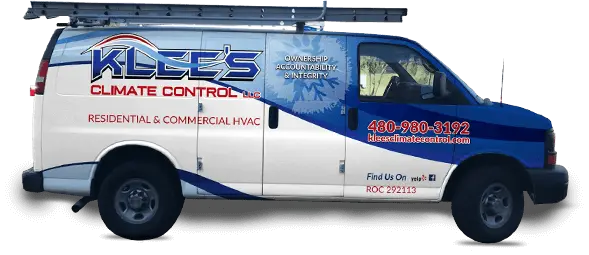As energy-saving and efficient climate control solutions gain popularity, heat pumps have emerged as a preferred choice for many homeowners and commercial property owners. These versatile systems can provide both heating and cooling, often with greater energy efficiency compared to traditional HVAC systems.
Heat pumps operate by transferring heat between the indoors and outdoors, providing year-round comfort while consuming less energy. They use refrigeration technology, similar to that of an air conditioner, to extract heat from the outdoor air or the ground and transfer it inside during colder months. Conversely, during warmer months, heat pumps move heat from the indoors to the outdoors, effectively cooling your space.
Explore the world of heat pumps, delving into the various types of heat pumps available, their benefits, and how our professionals can help you select, install, and maintain the perfect heat pump system for your residential or commercial property.
Selecting the Right Heat Pump for Your Needs
Before investing in a heat pump, it’s essential to evaluate your unique requirements and preferences to determine which type best fits your needs. Some critical factors to consider include:
- Climate: As air-source heat pumps rely on outdoor air temperature, their efficiency decreases in extremely cold climates, where ground-source heat pumps might be a better solution. Conversely, if you live in a moderate climate, an air-source heat pump may provide optimal performance.
- Space Constraints: Ground-source heat pumps require more space for installation, as they utilize underground piping systems. If your property has limited outdoor space, an air-source or ductless mini-split heat pump might be more suitable.
- Heating and Cooling Requirements: For individual room temperature control, ductless mini-split heat pumps offer zoning capabilities, while air-source or ground-source heat pumps are better suited for whole-home comfort.
- Installation Costs: Ground-source heat pumps often involve higher upfront costs due to the need for excavation and underground piping installation. However, their greater energy efficiency could result in long-term cost savings. Comparatively, air-source and ductless mini-split heat pumps usually have lower installation costs.
The Importance of Professional Heat Pump Installation
Proper heat pump installation is crucial for the system’s optimal performance, safety, and longevity. By partnering with our team for your heat pump installation, you can reap the benefits of our professional expertise, which include:
- Correct Sizing: Our technicians are skilled in determining the appropriate size of your heat pump system, ensuring it operates efficiently and provides consistent comfort.
- Safety Measures: By entrusting your heat pump installation to our professionals, you ensure that all safety precautions are followed, safeguarding both you and your property from potential hazards.
- Warranty Protection: Most heat pump manufacturers require professional installation to validate their warranty coverage. Choosing our company guarantees your system’s warranty remains in effect.
- Customization: We offer tailored solutions to suit your unique needs, preferences, and limitations, ensuring your heat pump system integrates seamlessly into your space.
Maintaining Your Heat Pump: Proactive Tips and Best Practices
Routine maintenance is essential for extending the life of your heat pump and maintaining peak efficiency. Follow these tips for proactive heat pump upkeep:
- Clean or Replace Filters: Regularly check and clean your heat pump’s filters, as outlined by the manufacturer, to maintain proper air quality and system efficiency.
- Schedule Professional Maintenance: Arrange for annual professional maintenance with our expert team to assess your system’s components, make necessary adjustments, and address potential issues before they escalate.
- Inspect Outdoor Units: Keep the area around your outdoor unit clear of debris, snow, and ice to ensure proper heat exchange and prevent system damage.
- Monitor Performance: Stay vigilant for changes in your heat pump’s performance, such as unusual noises or reduced efficiency, and contact our professionals should any issues arise.
Commercial Applications of Heat Pumps
While heat pumps are often associated with residential use, they can also benefit commercial properties, including offices, warehouses, and retail stores. The following benefits demonstrate how heat pumps can be an advantageous choice for commercial applications:
- Energy Savings: Heat pumps often consume less energy compared to traditional HVAC systems, which can result in lower operating costs and reduced energy consumption.
- Flexible Design Options: With various types of heat pumps available, commercial property owners can choose a system that harmonizes with their space constraints and requirements.
- Simplified Maintenance: Since heat pumps function as both heating and cooling systems, having a single unit to maintain can streamline maintenance and reduce long-term costs.
- Environmentally Friendly: Heat pumps produce lower carbon emissions compared to traditional heating systems, helping businesses minimize their environmental impact.
A Brighter Future with Heat Pump Solutions
Heat pumps present a versatile, energy-efficient, and environmentally friendly option for both residential and commercial heating and cooling needs. By selecting the appropriate type, ensuring professional installation, and practicing regular maintenance, you can secure a comfortable and cost-saving climate solution.
At Klee’s Climate Control LLC, our team of professionals is dedicated to helping you reap the benefits of heat pump technology. Whether it’s selecting the right type, expert heat pump installation, or reliable repair and maintenance services, we are an all-in-one resource for all your heat pump needs in both residential and commercial applications. Contact us today to schedule an appointment and let’s create the perfect climate solution for your space!




